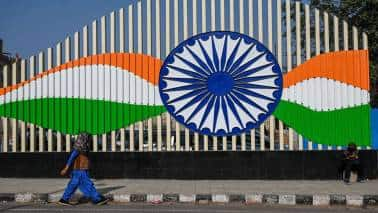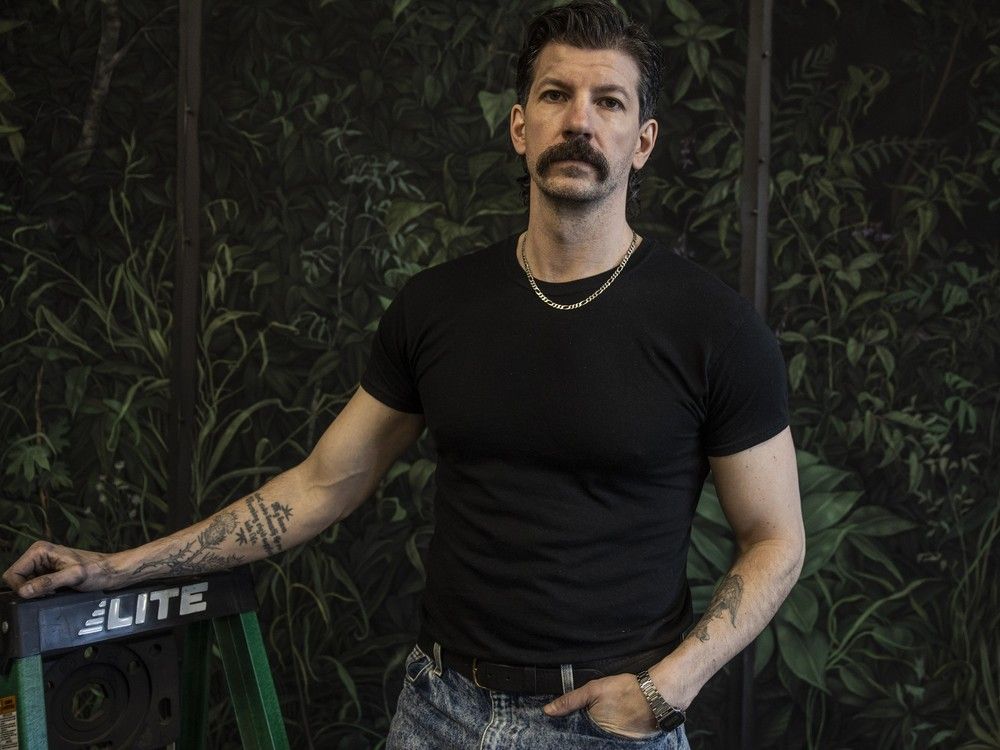
“We are renegotiating everything...
drastically,” said Dr S Jaishankar, India’s Foreign Minister, to young leaders from across the world, gathered at the 10th Raisina Dialogue- India’s global public town hall. He was echoing the palpable sense of a fundamental shift adrift in the global order in conversations this year, which is “overwhelming”, “pronounced” and “sharper”, then ever before— as a key takeaway from discussions. Described aptly as ‘a watering hole’ for multidimensional discussions in the ‘jungle that is the current international order’ - India’s ability to convene diverse and in some cases warring partners was apparent as high representatives from the US, Ukraine, Russia, Iran, Europe and key NATO states to name a few, engaged one another in animated discussions.

The emerging narratives from deliberations of how India sees the world and world engages with India, put into stark reality the geopolitical state of play and the opportunities for New Delhi therein. Out with the old, in search of the new First, the Rules-Based Global Order as we know it is ceasing to exist. The backlash against globalisation has meant there is a big shift towards rule by might, prioritising of economic and security-first interests.
The crises in multilateralism has amplified fissures in the global security and economic architecture and failed to effectively counter challenges of the day like technology geopolitics or climate action. As old power structures crumble, the scramble to secure the emerging multipolar global order when geopolitics is at its disruptive peak, is increasing instability. Groups of nations coalescing around common threat perceptions including managing Beijing and Moscow, now have to readjust to the emerging reality of a strategic rewiring with Washington.
President Donald Trump’s current geopolitics with a reset in Russia relations, the Ukraine vote, the rupture of the Transatlantic alliance and tariff wars, combined with clear signals that the US is no longer guaranteeing to underwrite the global order , have meant that fundamental changes are afoot and the churn is here to stay. A global reset under Trump 2.0 While U.
S. Director of National Intelligence, Tulsi Gabbard, addressed misconceptions about Trump's "America First" policy, clarifying that it should not be mistaken for isolationism, the discussions didn’t buy the reassurance, and voiced growing anxieties over a global reset of US relations with the world. Reflective of this was an emerging consensus that weaponisation of trade and the fall out of US-China strategic competition has meant increasing pressure on the rest to manage threat of tariffs, technological sanctions and trade restrictions.
This required the other middle powers to come together and prioritise the need for building resilience in economic governance and new supply chain configurations. New Delhi, took the opportunity to tell the world what it was doing and how. The complex interplay between trade, technology, and national security was addressed as a reality that anchored India’s choices in partners based on “trust and comfort, not just cost.
” The prioritisation of US, Europe and UK for trade negotiations, was showcased as the strategic investment New Delhi had made for partnerships on technology, connectivity and mobility of its people. The incentive especially on the Bilateral Trade Agreement with the US has been pushed for largely by India with multiple high level engagements looking to secure a deal that would satisfy Trump and safeguard Indian interests. Collisions and Possibilities with an Anxious Europe As regular participants at the dialogue, Europeans are no strangers to non-Western perspectives on the Russia-Ukraine War.
However, the Trump- Putin talks happened as the dialogue unfolded and a visibly divided European reaction on engaging of Russia was apparent. Cracks in the wall were clear with some officials calling for continued isolation of Russia, while others advocated for reopening diplomatic channels. Former Australian Prime Minister Tony Abbott exemplified the conflicting perspectives in the West, challenging Russian officials on Ukraine's sovereignty and exhorting India to step up by sending peacekeepers to Kiev to enforce a peace deal.
Abbott’s appeal to India comes as Moscow has rejected the idea of peacekeeping troops from NATO countries being stationed in Ukraine. India has faced intense criticism, especially from its partners in Europe and the West, that it has been neutral over the Russia-Ukraine conflict. India asserted it is on the side of peace.
However many European thinkers provoked conversations on the sidelines arguing —“yes India is being proved right in its call taken on Ukraine , but does it mean you stay the course , while we burn?.” Current frustration on the state of affairs in Europe is understandable, yet the assumption that both Europe and India are not leaning on each other is far from the truth. India’s markets and its people are worthy of strategic bets to be taken by Europe, as witnessed during the visit of EU chief Ursula von der Leyen, along with Europe's top leadership earlier in February.
Apart from accelerating the FTA, shared concerns on China- especially dominance of supply chains, a revival of mutual interest in connectivity (IMEC) , technology (AI, semiconductors, digital public infrastructure, green, clean tech) , as well as a commitment to transparency in standard setting are binding the two sides. All of this, however, can only move if the difficult conversations on India’s relationship with Russia and Europe’s economic reliance on China are addressed transparently and continuously to bolster strategic trust. Indo-Pacific: Central theatre of concern and convergence China’s increasing military activity near the Pacific Islands and Taiwan Strait were highlighted as key challenges for leading powers in the Indo-Pacific, amidst rising ambiguity on the direction of Trump’s China policy and concerns that Washington’s withdrawal from global affairs cedes space to China.
New Zealand’s PM Christopher Luxon, who was the chief guest at the dialogue, spoke to the alarm of his citizens on account of increasing Chinese activity in their seas and the need for collective efforts to bolster maritime security in the Indo-Pacific. Suggestions for countries like Australia, New Zealand , India , Japan, France and UK to do more to check Chinese ambitions while living with the reality of expanding Chinese footprint was made repeatedly. Interestingly the provocative case for an Asian Quad comprising of Japan, India, Indonesia and Australia to push back effectively against Chinese unilateralism was made by a Japanese academic, reminding one of the shifting sands of geopolitical alignments.
Case in point was the reassurance sought from top navy officials from Japan, Australia, Philippines and the US, on the reliability of President Trump’s administration for security cooperation. While the unanimous response was that the US was committed to stay, the suggestion that US’ planned withdrawal from Europe would mean doubling down of resources and interests in the Indo-Pacific was not denied either. Diverse voices from the Indo-Pacific focusing on military contingencies, underscored the urgent need for cooperation and partnership among navies of like-minded nations to address challenges to the contested global commons and the changing character of warfare.
As India prepares to host a Quad summit later this year, it will have to address this crises in confidence amongst nations in the Indo-Pacific. India’s agile and looking at partners and possibilities Despite, the loud disagreements over the management of current global churn, the consensus in most rooms on India’s stabilising presence and role in this transitioning order was emphasised. The agility of Indian diplomacy to manage the current flux has been applauded.
The message from New Delhi was one that came from a sense of pragmatism and confidence, making the case that India is looking at the world as an opportunity, its optimistic of its sustained growth as it looks at partners and possibilities. The lessons for India seem to be on building capacity and capability to absorb, utilise and benefit from this transformative leap of technology which it cannot afford to remain agnostic to. The announcement of India AI Mission and collaboration with the Indian Parliament to develop indigenous AI models using legislative data is a commitment in the right direction.
The decision to develop domestic AI capabilities to safeguard data security and national sovereignty and investment in creating a homegrown AI language model like ChatGPT and enhance local semiconductor and GPU manufacturing— are signs that India means business. Show and tell? The other lessons, India is taking back is that diversity matters and the world is not flat nor accepting any longer of decisions taken by a few at the cost of the many, said India’s Foreign Minister. In the current polarised era, India is among the few countries that can simultaneously engage Russia and Ukraine, Israel and Iran, the democratic West and the Global South, and the BRICS and QUAD and create the space for equitable conversations.
While India has done well in speaking truth to power on the crises in multilateralism , empowerment of the global south , correction of the international financial system and double standards in global governance from Afghanistan to Kashmir, there is also criticism coming in from the West. Benedikt Franke, curator of the Munich Security Conference put it that “(India) has little to show for this outspokenness (or normative power, aside from the long over-due inclusion of the African Union as permanent member of the G20).” It’s only natural, that as India grows, expectations from India will grow too.
As Trump 2.0 brings back concerns over the return of geopolitical spheres of influence, India has the potential and opportunity to show the alternative way. India’s global public square certainly put many of those ideas on the table.
S hruti Pandalai is a Fellow at MP-IDSA , New Delhi looking at India’s Foreign and Security Policy with a focus on India’s Indo Pacific Geopolitics. Feedback welcome @shrutipandalai Views are personal and do not represent the stand of this publication..















